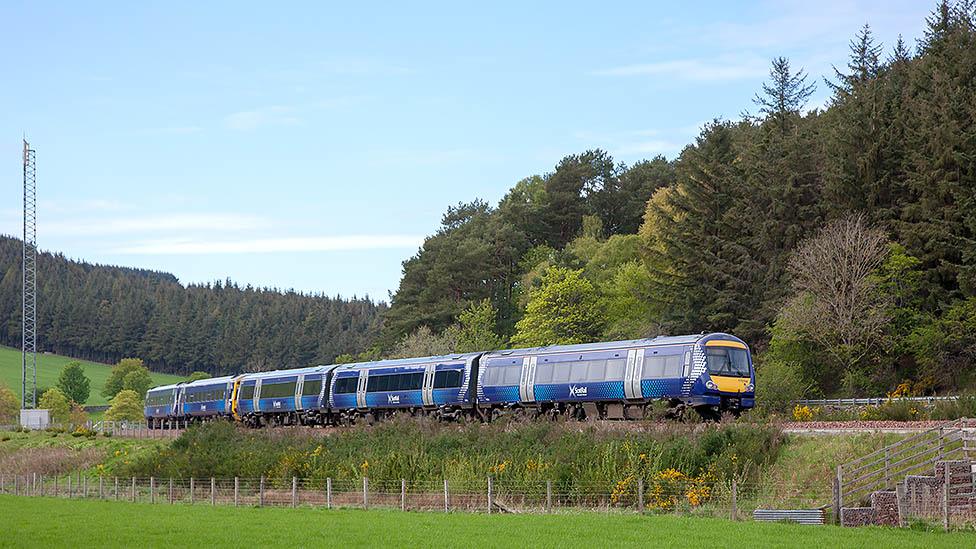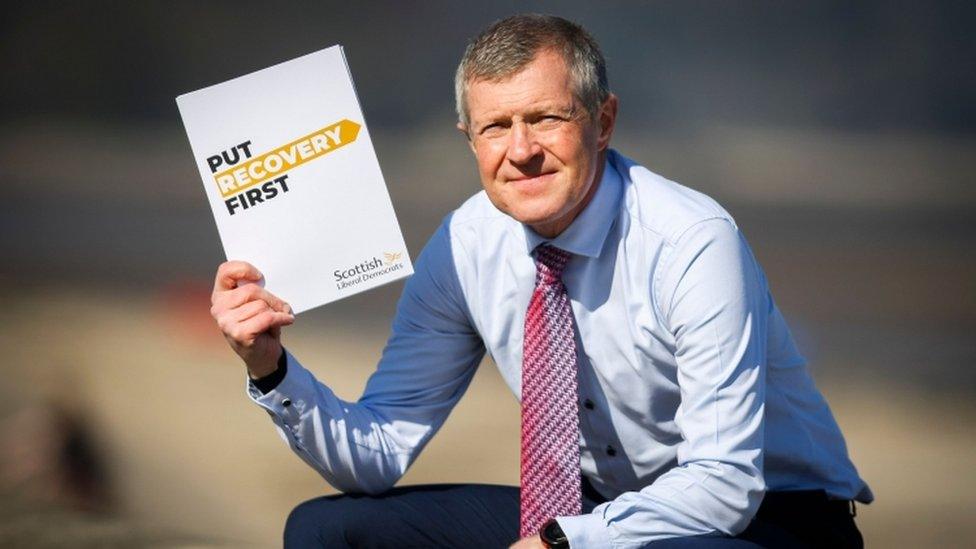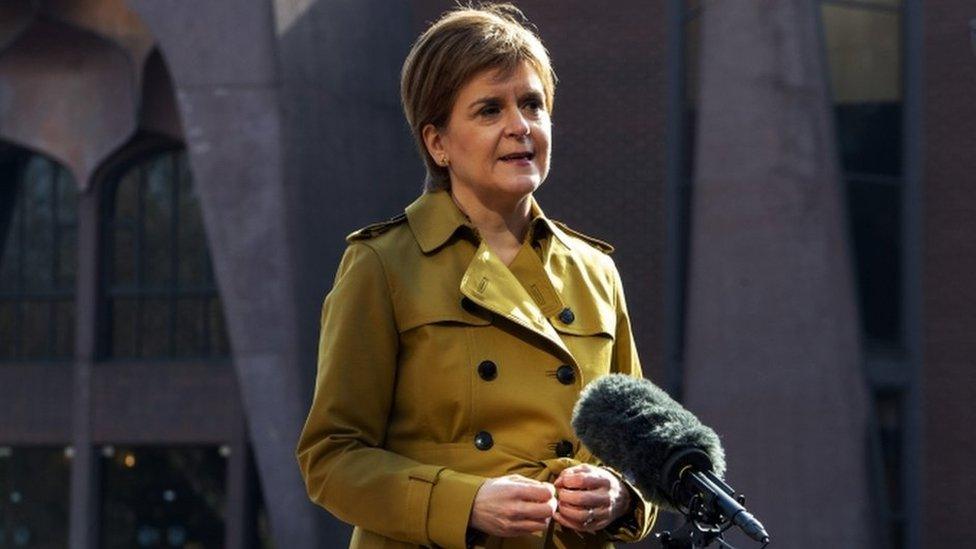Scottish election 2021: Labour plan to create 170,000 jobs
- Published

Scottish Labour leader Anas Sarwar and UK Labour leader Sir Keir Starmer visit Edinburgh Airport on the election campaign trail
A plan to create at least 170,000 jobs has been unveiled by Scottish Labour leader Anas Sarwar.
Mr Sarwar was joined in Edinburgh by UK Labour leader Keir Starmer to promote what the party claims is the "biggest job creation scheme" since devolution.
It includes 60,000 "jobs for recovery" where every young person is guaranteed a job for at least six months.
New roles linked to renewables projects are part of the jobs creation plan.
Speaking at Edinburgh Airport, Mr Sarwar said: "Scotland is facing a job crisis - and without urgent action, we could see hundreds of thousands of people facing a future out of work.
"That's why at this election we've set out plans to create at least 170,000 jobs in Scotland.
"That includes a guarantee for every young person or unemployed person to have a job and it is the biggest job creation scheme in the history of devolution."
Sir Keir added that Scottish Labour's plan is the "only thing on offer with the scale of ambition needed to start Scotland's recovery from this pandemic".

SCOTLAND ALERTS: Get extra updates on BBC election coverage

Elsewhere on the campaign trail, Scottish Conservative leader Douglas Ross has unveiled proposals that would allow communities to register interest in the reopening of railway stations.
Part of the changes Mr Ross proposes would see a reverse of the Beeching cuts in the 1960s, so called because of a report written by British Railways chairman Dr Richard Beeching which resulted in line closures.
The Tory infrastructure plan states: "We would review closed rail lines and stations and reopen those which would support local growth.
"We would also take forward plans to reopen the line between Perth and Edinburgh."

Extending the Borders Railway on to Carlisle, as it used to before the Beeching cuts of the 1960s, is one of the schemes which already has some local community support
When asked by journalists what other lines could be reopened, the Tory leader pointed to the Buchan railway station in the north east and its line running to Formartine.
The Tories also propose a smart travel card that would work on public transport across Scotland, akin to an Oyster Card in London.

SCOTLAND'S ELECTION: THE BASICS
What's happening? On 6 May, people across Scotland will vote to elect 129 Members of the Scottish Parliament (MSPs). The party that wins the most seats will form the government. Find out more here.
What powers do they have? MSPs pass laws on aspects of life in Scotland such as health, education and transport - and have some powers over tax and welfare benefits.
Who can vote? Anyone who lives in Scotland, is registered to vote and aged 16 or over on 6 May is eligible. You can register to vote online, external.

The Scottish Greens were also on a transport theme in North Queensferry where the party was setting out proposals to establish direct, publicly-owned ferry services from Scotland to Europe.
Scottish Greens co-leader Lorna Slater said: "Scotland's journey back to Europe starts at this election, and the Scottish Greens want to see new links established from places like Rosyth, which has the advantage of already having infrastructure in place.
"And we have a publicly-owned operator ready to step up to give Scots more opportunities to get to Europe without having to fly."
Dental costs
The SNP launched its manifesto on Thursday with the promise to provide a "transformational" increase in NHS funding if the party wins the election.
A pledge to scrap NHS dental charges in Scotland was also made and it has been revealed that will begin with abolishing the fees for young people who have been in care.
The entire rollout of getting rid of the fees will take five years and cost about £100m.
Meanwhile the Scottish Liberal Democrats have launched their Holyrood election manifesto with a pledge to prioritise the recovery from the Covid pandemic.

POLICIES: Who should I vote for?
CANDIDATES: Who can I vote for in my area?
PODLITICAL: Updates from the campaign



Do you have a question about the Scottish Parliament election? Use the form below to send us your questions and we could be in touch.
In some cases your question will be published, displaying your name, and location as you provide it, unless you state otherwise. Your contact details will never be published. Please ensure you have read the terms and conditions.
If you are reading this page on the BBC News app, you will need to visit the mobile version of the BBC website to submit your question on this topic.
- Published16 April 2021

- Published15 April 2021

